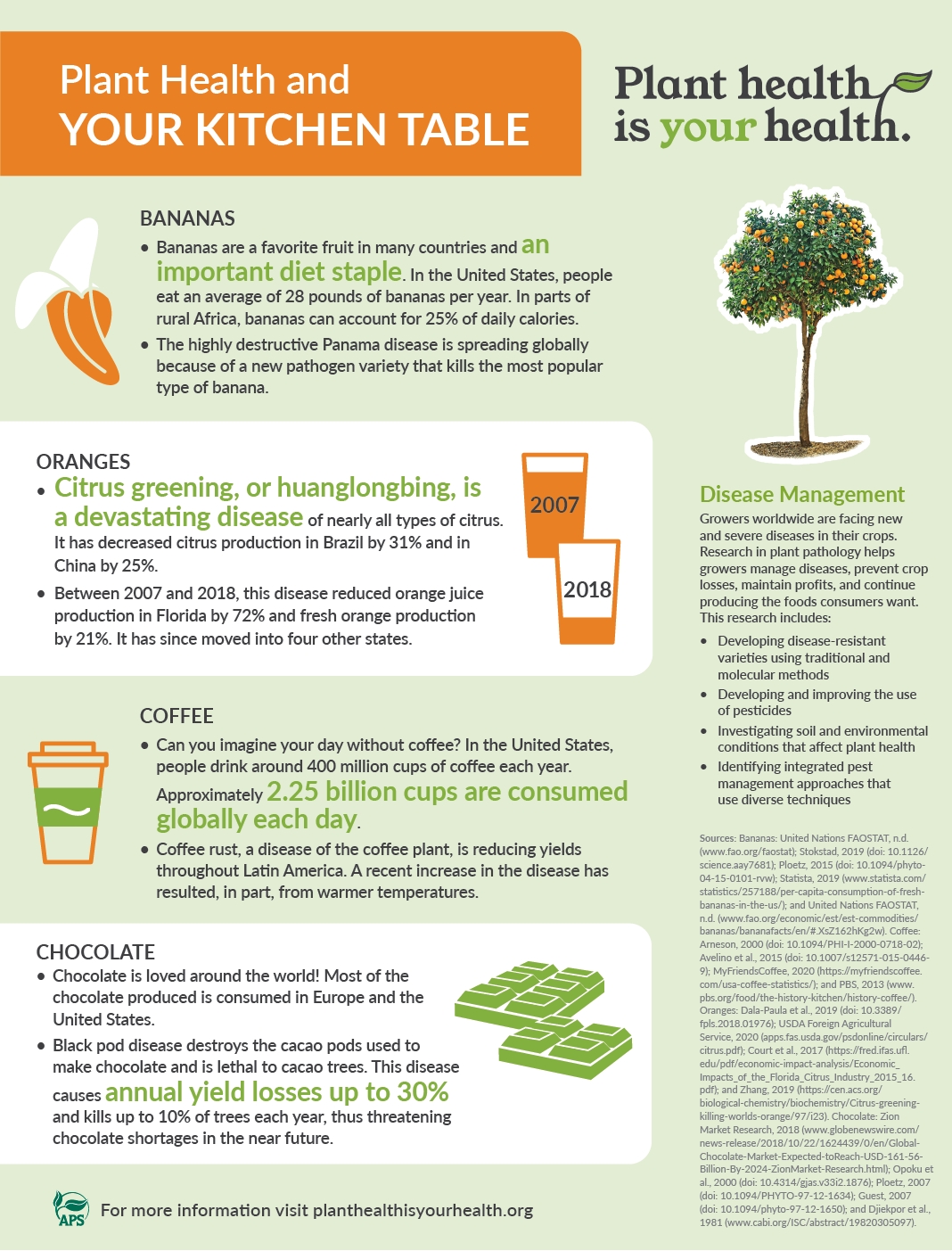August 2020
Healthy Plants and Your Kitchen Table
Plant diseases impact the foods we eat in fields, orchards, and even on your kitchen shelf. Plant diseases like Panama disease threaten banana production; the future of orange juice is in question thanks to Huanglongbing or citrus greening; your morning cup of joe is threatened by coffee rust; and even chocolate, loved by many, is threatened by diseases including black pod. Global trade of these and other agricultural commodities means that plant diseases, while locally important, can have worldwide impacts.

But the science of plant pathology protects against yield and quality losses to crops important to human survival and enjoyment. Understanding the diversity of plant pathogens can help plant pathologists hone in on a pathogen’s “weak spot”, much like understanding seasonal diversity of flu strains enables deployment of effective vaccines. Understanding how a pathogen infects a plant and how disease can develop and spread leads to efficient and environmentally-friendly control strategies that include cultural methods, timely application of chemical controls, and modifying local environmental factors like soil quality or water availability to limit disease impacts. Plant pathologists work closely with plant breeders to identify genetic resistance in crops and in their wild relatives to improve a plant’s natural ability to detect pathogens and successfully fend them off. Plant pathologists and other plant health experts also work to ensure that imported food crops and other agricultural commodities are free of disease, limiting the global spread of harmful pathogens and pests. In every corner of the globe, plant pathologists work diligently to protect our food crops and ensure a food secure, environmentally sustainable future.
You can help keep the field of plant pathology strong. Advocate for public funding for plant pathology research through government agencies such as the USDA and the National Science Foundation. Tell your neighbors about plant pathology and the impacts of plant diseases. Learn about the exciting science plant pathologists pursue through free resources on the APS website, YouTube videos produced by land-grant institutions, and Master Gardener training provided by your local Extension agents. Together, we can keep the science of plant pathology strong and protect the food crops we care about.
Plant Health Is Your Health!
View Spanish Version
View Portuguese Version
